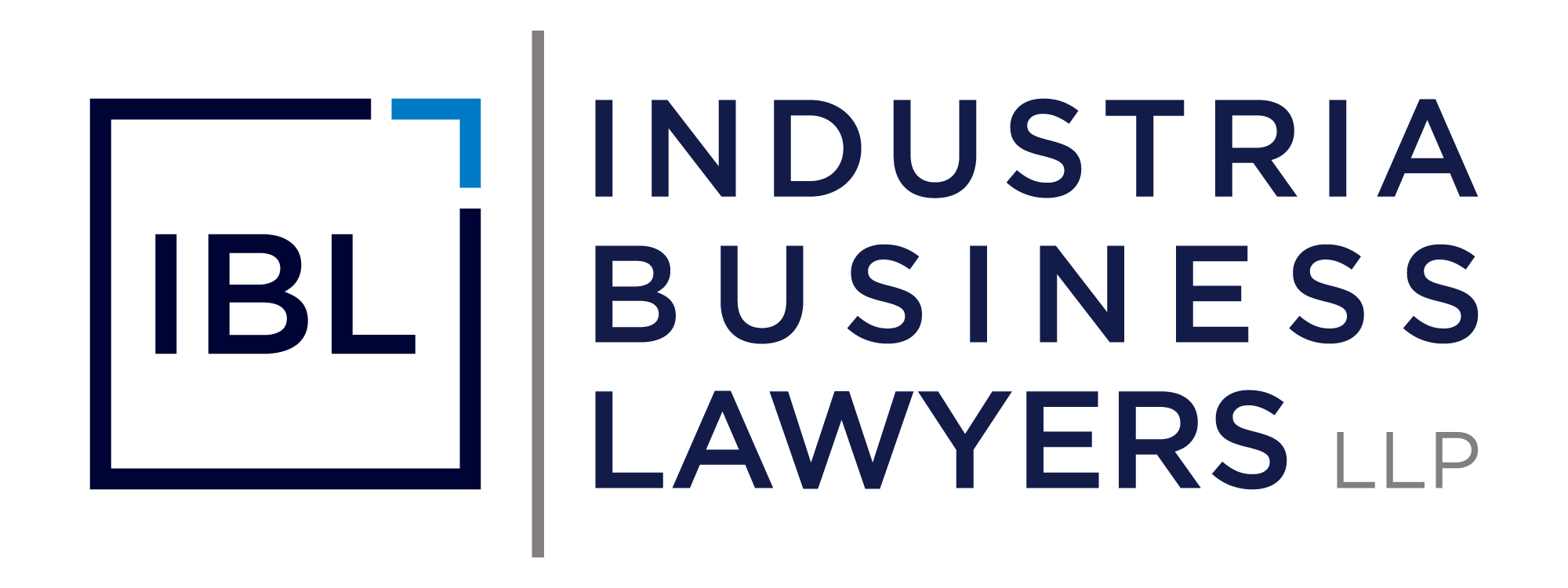Written by: Aaron Krowne
Initial Coin Offerings (ICOs) have become a popular method for blockchain ventures to raise capital. However, the rise of ICOs (and other forms of token-issuances, sometimes also called “Initial DEX Offerings” or “IDOs”, “Initial Exchange Offerings” or “ILOs”, or a variety of other terms–hereunder, all “ICOs”) has brought significant regulatory scrutiny, particularly concerning the classification of tokens as securities. In the U.S., and in various other jurisdictions, ensuring securities compliance is critical for ICOs to operate legally and avoid penalties. This article explores the essential aspects of ICO securities compliance, including regulatory frameworks, compliance strategies, and best practices.
Key Takeaways
- Definition: ICO securities compliance involves adhering to securities laws in the U.S. and regulations to ensure that tokens offered in ICOs are legally compliant.
- Regulatory Framework: In the U.S., the SEC plays a pivotal role in determining whether ICO tokens are classified as securities.
- Compliance Steps: Include token classification, regulatory filings, disclosure requirements, and investor protection measures.
- Challenges: Include navigating complex regulatory environments, evolving regulations, and ensuring comprehensive compliance.
- Importance: Compliance is crucial to avoid legal penalties, protect investors, and build trust in the market.
Understanding ICO Securities Compliance
Regulatory Framework
United States: SEC Regulations
The U.S. Securities and Exchange Commission (SEC) is the primary regulatory body relevant to securities compliance in the ICO context. However, it is not an “ICO regulator” (or regulator of any form of blockchain token offerings) affirmatively, as the U.S. currently lacks bespoke crypto legislation.
The SEC primarily uses the Howey Test to determine whether a token is a type of security called an investment contract. According to the Howey Test, a token is considered an investment contract if it involves all of:
- An investment of money.
- In a common enterprise.
- With an expectation of profits,
- primarily from the efforts of others.
Tokens that meet these criteria are subject to federal securities laws, including registration requirements and investor protection regulations.
Other Jurisdictions
Different countries and regions have varied approaches to ICO regulation:
- European Union: The EU’s Markets in Crypto-Assets (MiCA) regulation aims to create a unified framework for crypto-assets, including ICOs. MiCA covers a broad range of crypto assets, including asset-referenced tokens (ARTs), e-money tokens (EMTs), and other crypto assets like utility tokens. On the other hand, the Markets in Financial Instruments Directive (MiFID II) applies to crypto tokens that qualify as financial instruments (security tokens) and regulates them under existing EU financial regulations for securities, imposing stricter requirements on market operators and service providers.
- Asia: Countries like Japan have clear regulatory guidelines for ICOs, while others like China have banned them outright.
Compliance Steps
Token Classification
Determining whether a token is a security is the first step in ensuring compliance. This involves a detailed analysis using the Howey Test and other relevant criteria. Furthermore, in 2019, the SEC released the Framework for “Investment Contract” Analysis of Digital Assets to assist issuers and market participants in applying the Howey Test to determine if a digital asset qualifies as a security. While the framework is non-binding, it clarifies when compliance with federal securities laws is necessary.
Additionally, the SEC has issued a limited number of token-related no-action letters (NALs), which offer further guidance on specific cases. The token NALs relate to the tokens proposed by TurnKey Jet, Pocketful of Quarters, and IMVU illustrate how the SEC assesses factors that may support a token’s classification as a utility token with limited potential for speculative use. However, it bears noting that the token NALs all have a quite limited range of ground facts, including (1) 100% reserves of token sale funds for client purposes, (2) limited or no ability to transfer the token “off-platform,” (3) full development of the platform/services prior to selling a single token, (4) no ability to economically profit from the token (i.e., if redeemed, this is only at par or a discount).
Regulatory Filings
If a token is classified as a security, the issuer must register the ICO with the SEC or qualify for an exemption. Common exemptions include:
- Regulation D: Allows companies to raise capital through the sale of securities without registering with the SEC, provided they meet certain conditions. Regulation D offers three key exemptions for companies to raise capital without SEC registration: (i) Rule 504: Allows raising up to $10 million in a 12-month period, with minimal restrictions on investors, but may be subject to state-level regulations (AKA state “blue sky laws”); (ii) Rule 506(b): Permits unlimited fundraising from accredited investors and up to 35 sophisticated non-accredited investors, but prohibits general advertising, and (iii) Rule 506(c): This, the most popular exemption, allows unlimited fundraising with general advertising, but sales are limited to verified accredited investors only.
- Regulation A+: Allows smaller companies to raise funds from the public under two tiers with simplified registration requirements. Tier 1 permits raising up to $20 million in a 12-month period with no investor type or investment amount restrictions, but requires compliance with state securities laws. Tier 2 allows raising up to $75 million, with non-accredited investors limited to investing 10% of their annual income or net worth, and it preempts state law registration requirements.
- Regulation S: Applies to offers and sales of securities outside the U.S. and to non-U.S. persons. It targets non-U.S. investors, with no direct selling efforts permitted in the U.S., and includes resale restrictions to prevent immediate re-entry into U.S. markets. There are compliance requirements, but no application to the SEC is required.
- Regulation Crowdfunding (AKA “Reg CF”): allows small companies to raise up to $5 million in a 12-month period from the public, including non-accredited investors, through SEC-registered crowdfunding platforms.
Disclosure Requirements
Issuers must provide comprehensive disclosures to investors which vary depending on the specific exemption, including:
- Detailed information about the token being offered;
- General description of the project or venture and its goals.
- Rights and restrictions of the tokens being offered.
And, although not explicitly required under Regulation D, Rule 506(c) or regulation S, providing the following information enhances transparency and investor confidence:
- The financial condition and operations of the issuing entity.
- Risks associated with the investment, and any risk factors specific to the issuer or its industry.
Investor Protection Measures
Ensuring that investor protection measures are in place is crucial for compliance with regulatory frameworks governing token issuances. Different regulations establish distinct requirements to protect investors, with each regulation targeting different offering sizes, investors types and jurisdictions. Therefore, the measures to protect investors vary depending on the applicable regulation. However, the following measures generally apply in investor protection context:
- Implementing AML/KYC procedures to verify the identity and jurisdiction of residency of investors, and to ensure they are not sanctioned by the Office of Foreign Assets Control (OFAC) or other governmental sanctions authorities, to prevent fraud and illegal activities.
- Adhering to anti-fraud provisions (this applies in all securities transactions, even exempt transactions) prohibiting any false statements, omissions, or misleading information in offering documents and/or communication .
- Providing accurate, clear, comprehensive and truthful information to investors about the offering (disclosure requirements may vary depending on the applicable regulation).
- Establishing mechanisms for handling investor complaints and disputes.
There may be specific measures to implement for specific regulations as follows:
- Determining the investor’s country of residency for Regulation S.
- Taking steps to verify the “accredited” status of the investor for Regulation D (exemptions may apply for Regulation D Rule 506(b)).
- Determining the investment caps based on the investor’s income and net worth, ensuring retail investors are not overly exposed to risks for Reg CF.
Challenges in ICO Securities Compliance
Regulatory Uncertainty
The rapidly evolving regulatory landscape for ICOs poses significant challenges. Issuers must stay informed about regulatory changes and ensure ongoing compliance.
Complexity of Compliance
Ensuring comprehensive compliance involves navigating complex legal requirements, which can be resource-intensive and require specialized legal expertise.
Cross-Border Issues
ICOs often target global investors, necessitating compliance with multiple jurisdictions’ regulations. This can complicate the compliance process and increase the risk of regulatory conflicts. Notably, an issuer of a token outside of the U.S. will likely still need to heed U.S. securities laws—including, in some cases, using strict KYC measures to fully block U.S. purchasers of their token in an ICO if the token is likely to be deemed a security in the U.S., but is not registered and no exemption has been followed.
Best Practices for ICO Securities Compliance
- Legal Consultation: Engage with legal experts specializing in securities law and cryptocurrency regulation to navigate complex compliance requirements. Typically, e.g., projects will want a full legal review and memorandum assessing the likelihood that their planned token or other digital asset is (or is not) likely to be viewed as a security by the U.S. SEC. (and, optimally, taking advice as is applicable from this review process)
- Thorough Documentation: Maintain detailed documentation of all aspects of the ICO, including token design, marketing materials, and investor communications.
- Transparent Communication: Provide clear, accurate, and comprehensive information to potential investors, ensuring transparency and building trust.
- Regular Audits: Conduct regular audits to ensure ongoing compliance with regulatory requirements and to address any potential issues proactively.
Conclusion
Navigating ICO securities compliance is essential for the legal and successful operation of ICOs. By understanding and adhering to regulatory frameworks, implementing robust compliance measures, and staying informed about regulatory developments, issuers can mitigate risks and build trust with investors.
For expert guidance on ICO securities compliance, consider consulting Industria Business Lawyers LLP (IBL) as your legal counselors. Our experienced team can provide comprehensive legal support to ensure your ICO meets all regulatory requirements. Contact IBL today to navigate the complexities of ICO regulation effectively.
FAQs
What is ICO securities compliance?
ICO securities compliance involves adhering to securities laws and regulations to ensure that tokens offered in an ICO are legally compliant, primarily by classifying tokens, making necessary regulatory filings, and protecting investors.
Why is ICO securities compliance important?
Compliance is crucial to avoid legal penalties, protect investors, ensure transparency, and build market trust. Non-compliance can result in severe legal and financial consequences.
What are the main regulatory frameworks for ICOs?
In the U.S., the SEC regulates ICOs by default, using the Howey Test to determine whether a token is a security. The SEC released the Framework for “Investment Contract” Analysis of Digital Assets, in 2019, to assist issuers and market participants in applying the Howey Test to determine if a digital asset qualifies as a security. Other jurisdictions have their own regulations, such as the EU’s MiCA regulation (entering into force over 2024), MiFID II and Japan’s guidelines.
How can a token issuer ensure compliance?
Issuers can ensure compliance by determining (with counsel) likely token classification, taking advisory steps to lower the risk of an adverse regulatory action, making necessary regulatory filings, providing comprehensive disclosures, and implementing purchaser/investor protection measures.
What are the challenges in ICO securities compliance?
Challenges include regulatory uncertainty, the complexity of compliance requirements, and cross-border regulatory issues. Staying informed and engaging with legal experts is essential for navigating these challenges.
For detailed advice and professional support regarding ICO securities compliance, contact Industria Business Lawyers LLP (IBL) today.
[1] SEC, Framework for “Investment Contract” Analysis of Digital Assets (Apr. 3, 2019), available at https://www.sec.gov/corpfin/framework-investment-contract-analysis-digital-assets
[2] SEC, Response of the Division of Corporation Finance to TurnKey Jet, Inc, available at https://www.sec.gov/divisions/corpfin/cf-noaction/2019/turnkey-jet-040219-2a1.htm
[3] SEC, Response of the Division of Corporation Finance to Pocketful of Quarters, Inc., available at https://www.sec.gov/corpfin/pocketful-quarters-inc-072519-2a1
[4] SEC, Response of the Division of Corporation Finance to IMVU, Inc., available at https://www.sec.gov/corpfin/imvu-111920-2a1
[5] SEC, Private Placements under Regulation D – Investor Bulletin, available at https://www.sec.gov/resources-for-investors/investor-alerts-bulletins/private-placements-under-regulation-d-investor-bulletin
[6]SEC, Regulation A, available at https://www.sec.gov/resources-small-businesses/exempt-offerings/regulation
[7] SEC, Regulation CF, available at https://www.sec.gov/resources-small-businesses/exempt-offerings/regulation-crowdfunding
[8] SEC, Framework for “Investment Contract” Analysis of Digital Assets (Apr. 3, 2019), available at
https://www.sec.gov/corpfin/framework-investment-contract-analysis-digital-assets


